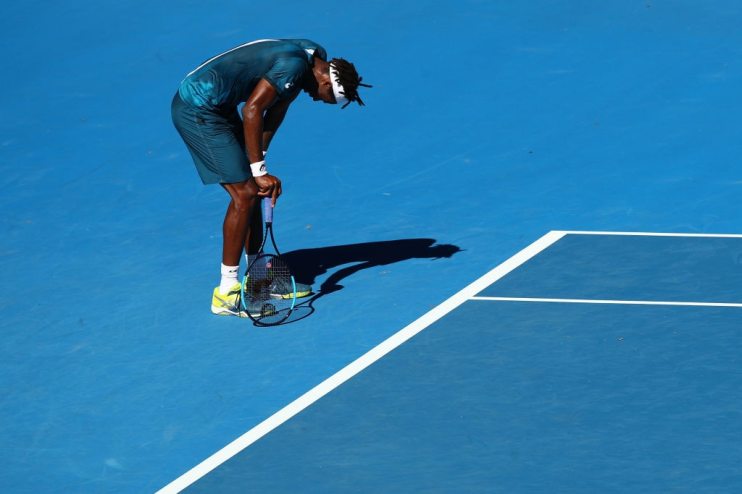Why sport is playing against the clock when it comes to the climate crisis

It is becoming increasingly apparent that the climate crisis touches everything and sport – often played outdoors and shaped by the weather – is, not surprisingly, no exception.
Winter sports are in serious trouble. Alpine glaciers and skiing seasons are rapidly shrinking. Not a single event on last year’s biathlon circuit could proceed without using artificial snow.
Given the lack of snow and ice in a heating world, half of all the cities that have staged the Winter Olympics will be unreliable hosts by 2050, and nearly all of them will be by 2080.
At the other end of the scale, extreme heat and wildfires are already making many summer events dangerous for both participants and athletes.
At the 2014 Australian Open, more than 1,000 people were treated for heat related illness, while in 2020 the tennis courts were filled with smoke from the raging bushfires across the country.
The Tokyo 2020 Olympics had to play some tennis matches at night and stage the marathon 1,000km north of the city as the city’s summers have become too hot and too humid. Expect a lot more of this.
Expect more extreme weather events too. Rain will definitely be stopping play more often. In the last five years, two of the West Indies’ key cricket grounds have been reduced to matchsticks by the increasingly powerful hurricanes that strike the islands.
According to the German Olympic Committee, the floods that swept through Germany this autumn did €100m worth of damage to grassroots sports facilities.
Add in sea level rises and golf links all over the world, many of them already losing a green or two to the ocean, will become unplayable.
By 2050, more than 20 of 92 English and Welsh league football grounds will face annual threats of major flooding, if they are not already under water.
How sport contributes to the climate crisis too
Sport is threatened by the climate crisis, but it is also a contributor to the problem.
The global sports industry accounts for around 0.8% of global output, and while it is less carbon intensive than say, concrete manufacturing, the building, equipping, travelling, and eating that sport involves creates a lot of emissions.
Its contribution is around the same as medium-sized states like Spain or Poland and no one is giving them a pass when it comes to emission reductions.
The world of sport has now woken up to the threat and the challenge.
The sector will be a more prominent feature of this year’s COP climate change conference than any predecessor, and the UN Sport for Climate Action Framework has signed up many of the world’s leading federations, leagues and clubs to its program of carbon zero sport.
We can already see major changes here in the UK, from Forest Green Rovers’ proposed carbon zero wooden stadium, to Wimbledon’s zero landfill waste policy and Liverpool and Tottenham Hotspur’s organic vegetable gardens.
However, a huge and demanding agenda awaits. In just a decade we need to utterly transform sport’s energy supplies, transport related carbon emission – both fans and athletes – not to mention the carbon footprint of the sportswear industry and sport’s acceptance of fossil fuel sponsorship.
Of course, even were the sports world to reach carbon zero it would hardly solve the wider problem, but that is not the point.
Rather, a radical campaigning carbon zero sports world offers something to the politics of the climate crisis that is currently lacking.
First, sport can reach a wider and more diverse constituency than any other popular cultural phenomenon and has the opportunity to normalise carbon zero policies.
Second, sport provides a rare space in modern, atomised cultures where we deeply believe and viscerally experience the ideas that collective action works, that we are more than the sum of our parts, that it is possible for us to collectively raise our game.
Third, sport offers hope – that you play to the whistle, that no cause is lost until it’s lost, that remarkable, impossible last-minute turnarounds are possible – and that, above all, is what we need.
As Yogi Berra, the great, gnomic New York Yankees catcher, used to say: “It ain’t over till it’s over.”
David Goldblatt is a writer and the author of Playing against the clock: Global sport, the climate emergency and the case for rapid change.
BT Sport will premiere Playing Against the Clock on October 31 on BT Sport 1 at 6pm, part of a BT Sport focus on sustainability to inform and inspire viewers on the climate emergency. To sign up to BT Sport’s Green Routine and make a change visit btsport.com/greenroutine. For more on BT’s work to fight climate change, visit: www.bt.com/sustainability